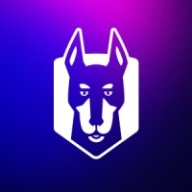

GitHub and Snyk both compete in the software development tools category, with Github having an advantage in code management and collaboration features, while Snyk excels in security functionalities.
Features: GitHub provides community support, project organization, and seamless integration with other DevOps tools, making it strong in code management and collaboration. Snyk focuses on vulnerability detection, source composition analysis, and integration with DevOps tools, enhancing its security features.
Room for Improvement: GitHub can enhance project management features, security, and integration with communication tools like Slack. Snyk could expand support for more programming languages and reduce false positives in its reports.
Ease of Deployment and Customer Service: GitHub supports public, hybrid, and private cloud deployments, relying on community-driven support, while Snyk offers deployment in public and private clouds with direct, albeit costly, technical support.
Pricing and ROI: GitHub allows free use for public repositories, making it cost-effective for small teams, while enterprise use is paid. Snyk prices based on developer seats and may be more expensive, but offers significant ROI with its comprehensive security features.
I can see that Snyk saves the costs of hiring security developers for vulnerability scanning and security checks, as that responsibility is now managed by Snyk.
The technical support from GitHub is generally good, and they communicate effectively.
Some forums help you get answers faster since you just type in your concern and see resolutions from other engineers.
I have not used GitHub's technical support extensively because there are many resources and a robust knowledge base available due to the large user community.
Our long-standing association has ensured smooth communication, resulting in favorable support experiences and satisfactory issue resolution.
Their response time aligns with their SLA commitments.
We could understand the implementation of the product and other features without the need for human interaction.
We have never had a problem with scalability, so I would rate it at least eight to nine.
GitHub is more scalable than on-prem solutions, allowing for cloud-based scaling which is beneficial for processing large workloads efficiently.
Snyk allows for scaling across large organizations, accommodating tens of thousands of applications and over 60,000 repositories.
Snyk is very scalable and can handle my organization's growth and changing needs.
If a skilled developer uses it, it is ten out of ten for stability.
It provides a reliable environment for code management.
GitHub is mostly stable, but there can be occasional hiccups.
When working with the CI/CD pipeline and somebody is writing the workflow file, it would be best to include the AI feature so if they write incorrect code, it will notify me about it in the same dashboard, eliminating the need to use third-party tools to review the file.
I am providing this feedback for Copilot because it seems more widespread and more companies allow it rather than Amp, and it would be beneficial if they catch up with Amp on this capability.
Security could make GitHub better. OWASP Top Ten security advisors could be integrated on GitHub, and it could provide checks and advice.
It lacks the ability to select branches on its Web UI, forcing users to rely on CLI or CI/CD for that functionality.
The inclusion of AI to remove false positives would be beneficial.
As we are moving toward GenAI, we expect Snyk to leverage AI features to improve code scanning findings.
Normally, GitHub is not expensive, but it would be welcome if it reduces costs for developing countries.
The pricing of GitHub is reasonable, with the cost being around seven dollars per user per month for private repositories.
The pricing of GitHub depends on the choice of solutions, such as building one's own GitHub Runners to save money or using GitHub's Runners with extra costs.
Snyk is recognized as the cheapest option we have evaluated.
After negotiations, we received a special package with a good price point.
Snyk is less expensive.
The pull request facility for code review.
GitHub Actions allow for creating multiple jobs that run in different stages such as build, test, and deploy, which enable better visibility and control over the deployment pipeline.
For branching, it works well, especially in an agile environment.
Our integration of Snyk into GitHub allows us to automatically scan codebases and identify issues, which has improved efficiency.
Snyk helps detect vulnerabilities before code moves to production, allowing for integration with DevOps and providing a shift-left advantage by identifying and fixing bugs before deployment.
Snyk has positively impacted my organization by improving the security posture across all software repositories, resulting in fewer critical vulnerabilities, more confidence in overall product security, and faster security compliance for project clients.
| Product | Market Share (%) |
|---|---|
| GitHub | 1.3% |
| Snyk | 5.6% |
| Other | 93.1% |


| Company Size | Count |
|---|---|
| Small Business | 42 |
| Midsize Enterprise | 13 |
| Large Enterprise | 49 |
| Company Size | Count |
|---|---|
| Small Business | 21 |
| Midsize Enterprise | 9 |
| Large Enterprise | 21 |
GitHub is a web-based Git repository hosting service. It offers all of the distributed revision control and source code management (SCM) functionality of Git as well as adding its own features. Unlike Git, which is strictly a command-line tool, GitHub provides a Web-based graphical interface and desktop as well as mobile integration. It also provides access control and several collaboration features such as bug tracking, feature requests, task management, and wikis for every project.
Snyk excels in integrating security within the development lifecycle, providing teams with an AI Trust Platform that combines speed with security efficiency, ensuring robust AI application development.
Snyk empowers developers with AI-ready engines offering broad coverage, accuracy, and speed essential for modern development. With AI-powered visibility and security, Snyk allows proactive threat prevention and swift threat remediation. The platform supports shifts toward LLM engineering and AI code analysis, enhancing security and development productivity. Snyk collaborates with GenAI coding assistants for improved productivity and AI application threat management. Platform extensibility supports evolving standards with API access and native integrations, ensuring comprehensive and seamless security embedding in development tools.
What are Snyk's standout features?Industries leverage Snyk for security in CI/CD pipelines by automating checks for dependency vulnerabilities and managing open-source licenses. Its Docker and Kubernetes scanning capabilities enhance container security, supporting a proactive security approach. Integrations with platforms like GitHub and Azure DevOps optimize implementation across diverse software environments.
We monitor all Application Security Tools reviews to prevent fraudulent reviews and keep review quality high. We do not post reviews by company employees or direct competitors. We validate each review for authenticity via cross-reference with LinkedIn, and personal follow-up with the reviewer when necessary.